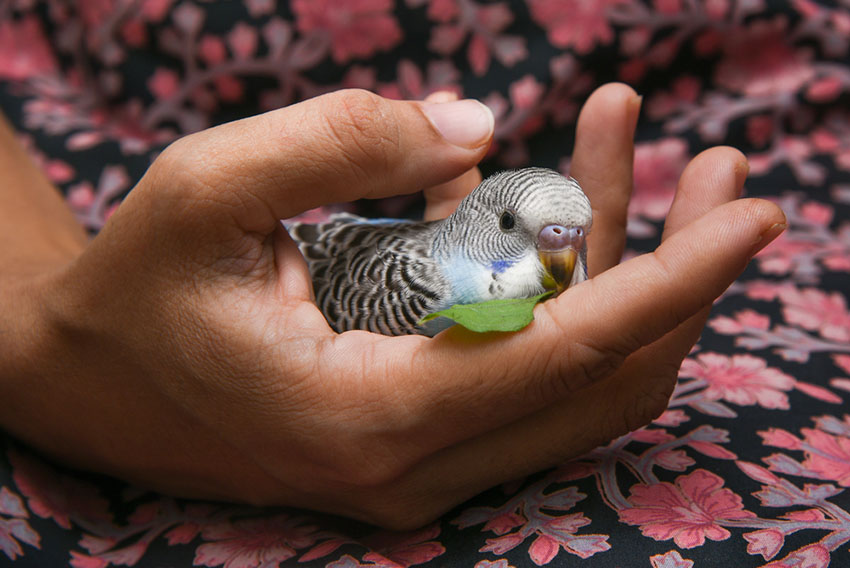
Caring for Baby Parakeets: A Comprehensive Guide
Introduction
Baby parakeets, also known as budgies, are adorable and affectionate creatures that require specialized care to thrive. As a responsible pet owner, it is crucial to understand their unique needs and provide them with a nurturing environment. This comprehensive guide will provide you with all the essential information you need to care for your baby parakeet, ensuring its health, happiness, and well-being.
Housing
- Cage Size: Choose a cage that is spacious enough for your baby parakeet to move around comfortably. A cage with dimensions of at least 18 inches in length, 18 inches in width, and 18 inches in height is recommended.
- Cage Bars: The cage bars should be spaced close enough to prevent your baby parakeet from escaping, but not so close that it can get its head or feet stuck. A bar spacing of 1/2 inch or less is ideal.
- Cage Location: Place the cage in a well-lit area that is free from drafts and direct sunlight. Avoid placing the cage near noisy appliances or in areas with excessive foot traffic.
- Cage Accessories: Provide your baby parakeet with a variety of accessories to keep it entertained and stimulated. These may include perches of different sizes and shapes, toys, a swing, and a mirror.
Feeding
- Formula: Baby parakeets require a specialized formula that mimics the nutritional content of their parents’ crop milk. Follow the manufacturer’s instructions carefully when preparing the formula.
- Feeding Frequency: Feed your baby parakeet every 2-3 hours during the first few weeks of life. As it grows older, you can gradually reduce the feeding frequency to every 4-6 hours.
- Feeding Method: Use a syringe or a spoon to gently feed your baby parakeet. Avoid overfeeding, as this can lead to digestive problems.
- Weaning: Once your baby parakeet is around 6-8 weeks old, you can begin weaning it onto a diet of seeds, pellets, and fresh fruits and vegetables.
Hygiene
- Cage Cleaning: Clean your baby parakeet’s cage regularly to prevent the buildup of bacteria and debris. Remove any droppings, food waste, and soiled bedding daily.
- Bathing: Baby parakeets do not require regular bathing. However, you can offer them a shallow dish of lukewarm water to bathe in if they desire.
- Nail Trimming: As your baby parakeet grows, its nails may become too long. Trim them carefully using a nail clipper designed for birds.
Health
- Regular Checkups: Take your baby parakeet to a qualified avian veterinarian for regular checkups. This will help ensure its overall health and well-being.
- Common Illnesses: Baby parakeets are susceptible to a variety of illnesses, including respiratory infections, digestive problems, and feather plucking. If you notice any signs of illness, such as lethargy, discharge from the eyes or nose, or changes in appetite, seek veterinary attention immediately.
- Quarantine: If you bring a new bird into your home, quarantine it for at least 30 days to prevent the spread of any potential diseases.
Socialization
- Handling: Handle your baby parakeet gently and frequently to socialize it. Start by holding it for short periods of time and gradually increase the duration as it becomes more comfortable.
- Talking: Baby parakeets are capable of learning to talk. Talk to your bird often and repeat simple words or phrases. With patience and consistency, it may eventually learn to mimic your speech.
- Companionship: Baby parakeets are social creatures and thrive in the company of other birds. If possible, provide your bird with a companion of the same species.
Training
- Potty Training: You can train your baby parakeet to use a specific area of its cage as a bathroom. Place a small dish of sand or litter in the desired location and reward your bird with a treat when it uses it correctly.
- Clicker Training: Clicker training is a positive reinforcement technique that can be used to teach your baby parakeet a variety of behaviors. Start by associating the clicker with a treat, then gradually use it to reward desired behaviors.
Additional Tips
- Provide Plenty of Toys: Baby parakeets are curious and playful creatures that require plenty of mental stimulation. Provide them with a variety of toys to keep them entertained and prevent boredom.
- Offer Fresh Water: Always provide your baby parakeet with fresh, clean water. Change the water daily and wash the water dish regularly.
- Monitor Temperature: Baby parakeets are sensitive to temperature changes. Maintain a consistent temperature of around 75-80 degrees Fahrenheit in their environment.
- Avoid Stress: Baby parakeets can be easily stressed by loud noises, sudden movements, or changes in their environment. Create a calm and peaceful atmosphere for your bird to thrive.
Conclusion
Caring for a baby parakeet is a rewarding experience that requires patience, dedication, and a deep understanding of their unique needs. By providing your bird with a nurturing environment, proper nutrition, socialization, and training, you can ensure its health, happiness, and well-being for many years to come. Remember to consult with a qualified avian veterinarian for any specific questions or concerns regarding the care of your baby parakeet.
